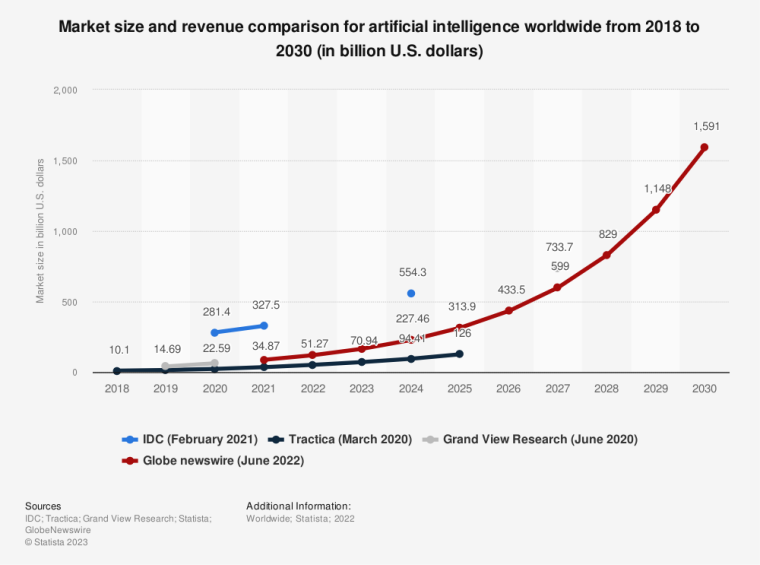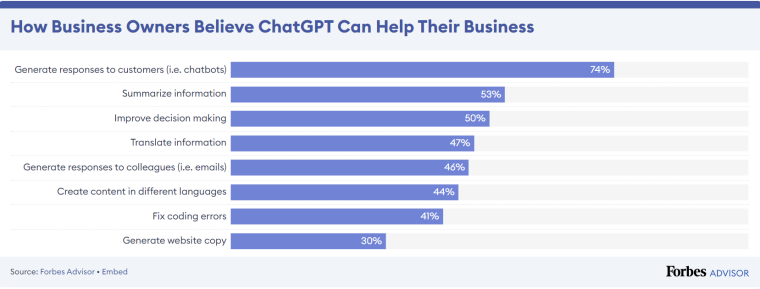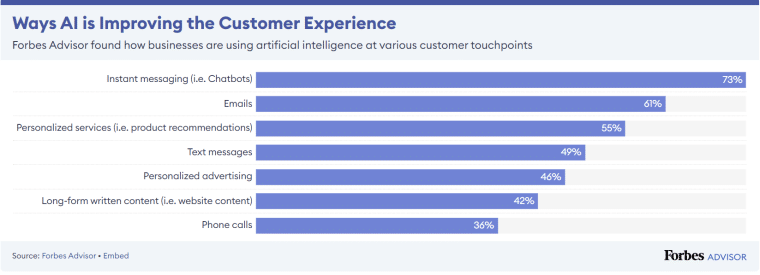
Microsoft’s Bing chatbot has driven more traffic to publisher websites, debunking the assumption that generative AI chatbots would diminish website visits.
AI technology has often been seen as a potential threat to search-reliant companies, with the belief that generative AI chatbots would decrease website traffic by providing direct answers to users’ inquiries.
However, Microsoft’s Bing chatbot has defied these expectations by actually driving more click-throughs to websites, according to Jordi Ribas, Microsoft’s corporate vice president overseeing search and AI.
“As we look at the overall traffic that we’re sending to publishers, it’s actually increased with the new Bing because people are engaging more,” Ribas said Tuesday at the Fortune Brainstorm Tech conference in Deer Valley, Utah
Ribas acknowledged that it is still early for the chatbot’s development, but emphasized that Microsoft is actively collaborating with publishers and exploring new interface designs and techniques to further enhance user engagement and direct them to publishers’ pages.
He emphasized the symbiotic relationship between Bing’s chatbot, publishers, and the advertising community, stating that the success of each party is crucial for the overall ecosystem to thrive.
“To really be successful, we need the publisher and the advertising community to be successful. That’s how the ecosystem works,” Ribas said.
For those who are deep into niche websites… that rely on Google Traffic…
How are you not scared about AI's impact on Search?
— Scott Oldford (@scottoldford) July 10, 2023
For search-driven companies like Microsoft and Google, advertising plays a vital role in their revenue generation.
As the internet search industry generates billions of dollars in advertising revenue every quarter, both companies are eager to monetize the chatbot format and seek new ways to profit from user searches.
Microsoft has positioned itself as a leader in the generative AI revolution, being one of the pioneers of AI chatbots with the introduction of Bing Chat.
However, the company also faced challenges when some users reported unsettling and problematic interactions with the unpredictable chatbot.
To further advance its AI capabilities, Microsoft has invested a substantial $13 billion into OpenAI, the developer of ChatGPT, and has plans to integrate OpenAI’s models into its products.
Bing Chatbot currently utilizes OpenAI’s GPT4 version in its search function.
Google Strives to Catch Up With Microsoft in AI Race
Microsoft CEO Satya Nadella has openly acknowledged that Google is seeking to catch up to their chatbot technology.
“At the end of the day, [Google is] the 800-pound gorilla in this,” Nadella told The Verge in February, adding:
“I hope that, with our innovation, they will definitely want to come out and show that they can dance. And I want people to know that we made them dance.”
While ChatGPT’s traffic recently experienced a slight decline following its record-breaking growth, there is no significant evidence of Google Search losing ground.
Google CEO Sundar Pichai has confidently stated that the company is better prepared for the AI shift compared to the mobile revolution triggered by Apple’s iPhone in 2007.
Back in April, Google’s parent company Alphabet announced that it is merging its two AI-focused research teams – DeepMind and Google Brain – into a single entity called Google DeepMind that will singlehandedly take over the firm’s initiative in this increasingly competed field.
At the time, Pichai said the teams were behind so many successful technological advancements such as AlphaGo and Transformers.
The push toward AI comes as the technology is expected to grow significantly in the years to come.
According to market research firm IDC, the global AI market will reach a size of over half a trillion US dollars by 2024. The research also suggests the market will grow to over $1.5 trillion by 2030.

AI Set to Find Mainstream Adoption As Usage Increases
AI is well on the path to finding mainstream adoption as more and more users interact with the technology on a regular basis.
As reported, a survey from the Pew Research Center revealed that 27% of Americans interact with AI on a daily basis.
Conducted in December last year, the survey found that another 28% of individuals encounter AI about once a day or several times a week.
On the other hand, 44% believe they do not regularly interact with the technology, which highlights the need for better education about AI.
Likewise, almost all businesses (97%) expect to use AI to improve their efficiencies and cut costs.
More specifically, a large majority of business owners (74%) said they expect ChatGPT will help them in generating responses to customers through chatbots.
Furthermore, many businesses see promise in the usefulness of AI, such as streamlining email communications with colleagues (46%), generating website copy (30%), fixing coding errors (41%), translating information (47%), and summarizing information (53%).

It is worth noting that AI is being used across a wide range of areas, including customer service, cybersecurity, fraud management, customer relationship management, inventory management, content production, accounting, supply chain operations, recruitment, and audience segmentation.
AI is also being used to enhance the customer experience across all touchpoints.
Approximately 73% of businesses use or plan to use AI-powered chatbots for instant messaging, 61% use AI to optimize emails, and 55% deploy AI for personalized services such as product recommendations.

Read More:
- 50+ ChatGPT Statistics on Usage & Revenue for April 2023
- Best AI Stocks to Invest in 2023
- Best AI Crypto Tokens & Projects to Invest in 2023
What's the Best Crypto to Buy Now?
- B2C Listed the Top Rated Cryptocurrencies for 2023
- Get Early Access to Presales & Private Sales
- KYC Verified & Audited, Public Teams
- Most Voted for Tokens on CoinSniper
- Upcoming Listings on Exchanges, NFT Drops